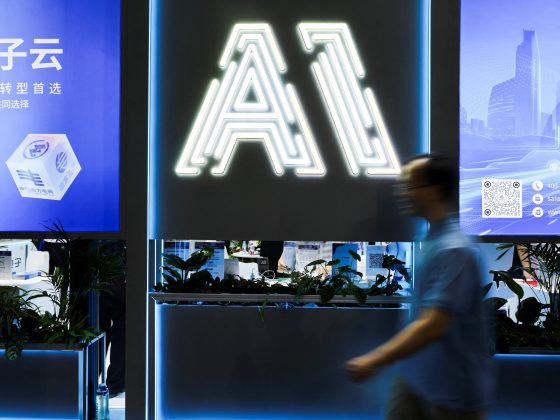Emotional support is an increasingly common reason people turn to generative artificial intelligence chatbots and wellness applications, but these tools currently lack the scientific evidence and the necessary regulations to ensure users’ safety, according to a new health advisory by the American Psychological Association.
China’s AI is quietly making big inroads in Silicon Valley
Chinese AI models are being adopted by US firms and winning praise from tech leaders in a challenge to Big Tech.
Artificial Intelligence and Social Media
On this edition of Iowa Press, we discuss the ways artificial intelligence and social media are changing business, politics, education, personal interactions, and more.
🚨 Iowa Families Address Risks of AI Manipulation in Kids
Following a deepfake incident, Iowa communities are emphasizing AI safety for children. Parents are advocating for increased monitoring of internet use and educative measures against manipulation. This involves discussions around deepfake technology and its implications for youth, safety practices, and engagement with local authorities on digital safety.
Read More:
🤖 Chad: the Brainrot IDE Merges Coding with Vibe Activities
Chad: the Brainrot IDE, a Y Combinator-backed innovation, blends programming with unconventional tasks like gambling and social apps, leveraging a unique approach to software development. This product challenges traditional coding paradigms, sparking discussions about creativity and distraction in tech. Its unconventional nature raises eyebrows about productivity tools.
Read More:
As AI Artists Breaking Rush & Cain Walker Rule a Country Chart, Nashville Execs Weigh in: ‘It’s Incredibly Detrimental’
As AI artists Breaking Rust and Cain Walker dominate a country music chart, industry players react to the phenomenon and discuss what it could mean.
Is the AI business model about to fail? A tech blogger uncovers OpenAI’s “financial black hole”: The burn rate is three times the publicly available data, and revenues are overstated while unable to cover costs!
Techblogger Ed Zitron, citing internal documents, revealed that OpenAI faces a significant ‘financial black hole,’ with its actual inference costs potentially three times higher than publicly disclosed figures. Moreover, the revenue derived from Microsoft’s revenue-sharing is far lower than officially claimed, making it difficult for income to cover the staggering expenses. If these figures are accurate, not only will OpenAI’s business model face questions about sustainability, but the profitability outlook of the entire generative AI industry could also be fundamentally overturned.
SGC deliberate on IC’s artificial intelligence policy with provost
The Ithaca College Student Governance Council met Nov. 10 to hear from Melanie Stein, provost and executive vice president for academic affairs, to speak about changes to departments and student concerns regarding artificial intelligence in education.
Iowa communities prepare kids for AI age after deepfake incident hits home
Iowa mom shares her family’s experience with AI manipulation, highlighting the importance of monitoring children’s internet use and advocating for AI regulation.
Matthew McConaughey, Michael Caine license likenesses as generative AI debate deepens
Actors Matthew McConaughey and Michael Caine have signed a deal with AI company ElevenLabs, becoming the latest stars to license their voices for digital recreation.









